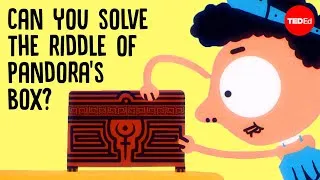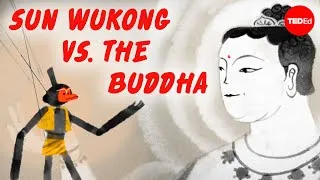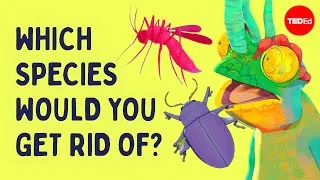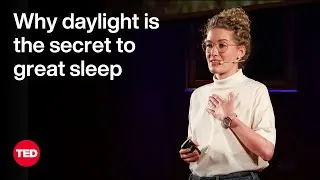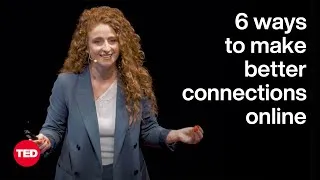English Greetings and Introductions - Spoken English
英文口說 — 用英文問候和介紹
746,533 views ・ 2017-11-18
請雙擊下方英文字幕播放視頻。
00:02
Hello.
0
2050
1100
Hello.
00:03
Hi.
1
3150
1100
Hi.
00:04
What's your name?
2
4250
1390
What's your name?
00:05
My name's Kasia, and you are?
3
5640
2600
My name's Kasia, and you are?
00:08
My name's Olivier.
4
8240
1720
My name's Olivier.
00:09
Nice to meet you.
5
9960
1840
Nice to meet you.
00:11
And you.
6
11800
1000
And you.
00:12
What are we doing in this lesson?
7
12800
1960
在本節課裡,我們會做什麼?
00:14
We're going to talk about greetings and introductions
in English.
8
14760
4020
我們會談談英文的
問候語和介紹用語。
00:18
Hi.
9
18780
1000
嗨。
00:19
I'm Olivier.
10
19780
1329
我是Olivier。
00:21
Welcome to Oxford Online English.
11
21109
1981
歡迎來到Oxford Online English。
00:23
What’s the first word you learned in English?
12
23090
6370
您學到的第一個英文單字是什麼?
00:29
Probably 'hello', right?
13
29460
2079
有可能是“hello”,對嗎?
00:31
'Hello' is the most basic way to greet someone
in English.
14
31539
4581
“Hello”是在英文裡問候
某人的最基礎方式。
00:36
There are many different ways to greet people
and introduce yourself in English.
15
36120
3780
在英文裡,有很多不同的方式
來問候以及自我介紹。
00:39
In different situations, you’ll need to
use different words and phrases to greet people
16
39900
5369
在不同的場合,您會需要用到
不同的單字和片語來
00:45
or make introductions.
17
45269
1591
問候人們或做介紹。
00:46
In this lesson, you can learn about greetings
and introductions in English and see which
18
46860
4980
在本節課裡,您可以學到用英文
問候或介紹,並看看在不同的
00:51
language you should use in different situations.
19
51840
6649
場合,您應當用哪一種說辭。
00:58
Imagine that you’re on a business trip,
and you’re meeting some important clients
20
58489
4081
想像您正在商業旅行,您正在與
一些重要的客戶
01:02
for the first time.
21
62570
3110
第一次會面。
01:05
Or maybe you work in service, for example
in a hotel, and you need to talk to guests
22
65680
6230
或者,也許您在服務業工作,例如,
在一個酒店裡,您要
01:11
and customers.
23
71910
3360
和住客及客人交談。
01:15
In these situations, you’ll want to use
more formal language.
24
75270
6190
在這些場合,您會想用到
更正式的說辭。
01:21
Good morning!
25
81460
1000
Good morning!
01:22
You must be Olivier.
26
82460
1820
You must be Olivier.
01:24
Yes, good morning!
27
84280
2320
Yes, good morning!
01:26
I’m sorry, and your name is…?
28
86600
2920
I’m sorry, and your name is…?
01:29
My name’s Kasia.
29
89520
1480
My name’s Kasia.
01:31
Very nice to meet you.
30
91000
1570
Very nice to meet you.
01:32
Welcome to Madrid!
31
92570
2600
Welcome to Madrid!
01:35
Thank you.
32
95170
1660
Thank you.
01:36
How are you today?
33
96830
2050
How are you today?
01:38
Very well, thank you, and yourself?
34
98880
2640
Very well, thank you, and yourself?
01:41
I’m good, thanks for asking.
35
101520
3660
I’m good, thanks for asking.
01:45
This dialogue uses more formal language.
36
105180
2680
這個對話使用很正式的說辭。
01:47
Can you see what makes it formal?
37
107860
2130
您能看出哪裡顯示出它是正式的嗎?
01:49
First, I started by saying good morning.
38
109990
3190
首先,我從說早安開始。
01:53
The greetings good morning, good afternoon
and good evening are quite formal and are
39
113180
4130
good morning、good afternoon和
good evening是很正式的,
01:57
generally only used in formal situations.
40
117310
3770
並且一般只用於正式場合。
02:01
There’s one exception: you can sometimes
use good morning informally with people you
41
121080
4620
有一個例外:您有時可以和您
認識的人非正式地
02:05
know.
42
125700
1000
用good morning。
02:06
However, it’s common in this situation to
simply say 'morning'.
43
126700
5440
然而,在此場合簡單地
說“morning”是常見的。
02:12
Can you see any other examples of formal language
in this dialogue?
44
132140
4220
您可以在這個對話裡看到
正式說辭的其他事例嗎?
02:16
There are many.
45
136360
1080
有很多。
02:17
Firstly, I asked Kasia’s name by saying,
and your name is…?
46
137440
5870
首先,我用“and your name
is…?”來問Kasia的名字。
02:23
This is more formal than asking what’s your
name?
47
143310
5140
這個比問 “what’s your
name?”更正式嗎?
02:28
After she introduced herself, Kasia said very
nice to meet you.
48
148450
5050
在她做自我介紹之後,Kasia說
“very nice to meet you.”
02:33
Saying nice to meet you is neutral—neither
formal nor informal.
49
153500
5000
說“nice to meet you”是一個中性的 —
不是正式的,也不是非正式的。
02:38
However, adding very makes it sound much more
formal.
50
158500
4200
然而,增加“very”會
聽起來更正式。
02:42
One word can make a big difference!
51
162700
3200
一個單字可以造成很大的差異!
02:45
I introduced myself with a full sentence:
My name’s Kasia.
52
165900
4310
我用一個完整的句子做自我介紹:
My name’s Kasia。
02:50
When speaking less formally, you’d use a
shorter introduction, like I’m Kasia or
53
170210
4360
當講得沒有很正式時,您會用一個
較短的介紹:像是“I’m Kasia”或
02:54
just Kasia.
54
174570
1000
就是“Kasia”。
02:55
After I introduced myself, I said Welcome
to Madrid.
55
175570
4060
在我做自我介紹之後,
我說“Welcome to Madrid.”
02:59
Does this sound formal or informal to you?
56
179630
3080
您覺得這聽起來是正式的還是非正式的?
03:02
It’s quite formal.
57
182710
1750
那是很正式的。
03:04
Do you know why it's formal?
58
184460
2170
您知道為什麼那是很正式的嗎?
03:06
Again, it’s a small change which makes a
big difference.
59
186630
4079
同樣,那是一個造成
很大區別的小小的改變。
03:10
Saying welcome by itself is neutral—it’s
not formal.
60
190709
3601
說“welcome”本身是中性的 —
那不是正式的。
03:14
However, adding to and a place makes it sound
much more formal.
61
194310
3710
然而,增加一個地方,
它聽起來會正式得多。
03:18
So, if you say, Welcome to our office! that
sounds formal, while if you just say, Welcome!
62
198020
6070
所以,如果您說“Welcome to our office!”
那聽起來是正式的,與此同時,
03:24
it doesn’t sound so formal.
63
204090
2370
如果您只說“ Welcome!”
那聽起來不太正式。
03:26
It’s common when greeting someone in English
to ask some kind of how are you question.
64
206460
6580
當用英語問候某人,問一些
“how are you”的問題,那是常見的。
03:33
Do you remember what Kasia asked me?
65
213040
4270
您記得Kasia問我什麼嗎?
03:37
She asked How are you today?
66
217310
3480
她說“How are you today?”
03:40
Again, one word makes the difference—do
you know which one?
67
220790
6320
同樣,一個單字造成了區別 —
您知道是哪一個嗎?
03:47
It’s today.
68
227110
3209
那是“today”。
03:50
Asking how are you is neutral.
69
230319
3161
問“how are you”是中性的。
03:53
Adding today makes it sound more formal.
70
233480
5220
添加“today”,它聽起來更正式。
03:58
My answer, Very well, thank you, also sounds
quite formal.
71
238700
5280
我的回答、“Very well”、“thank you”
也聽起來很正式。
04:03
If I was speaking more neutrally, I’d say
something like, Well, thanks.
72
243980
5500
如果我講得很中性,我會說某些
像是“Well”、“thanks”。
04:09
Adding very and saying thank you instead of
thanks makes it sound more formal.
73
249480
6620
增加“very”和說“thank you”取代
“thanks”,聽起來更正式。
04:16
Finally, Olivier asked me how are you back.
74
256100
6159
最後,Olivier反問我“how are you”。
04:22
Do you remember how he did it?
75
262259
2201
您記得他怎麼做的嗎?
04:24
He asked, and yourself?
76
264460
2760
他問“and yourself?”
04:27
This is more formal than asking and you?
77
267220
4140
這比問“and you?”更正式。
04:31
I replied and said thanks for asking.
78
271360
3829
我回答並說“thanks for asking.”
04:35
You wouldn’t say thanks for asking in a
more informal situation.
79
275189
4111
您在不是很正式的場合不必
說“thanks for asking”。
04:39
So, you’ve seen here how small changes can
make a big difference to how formal your language
80
279300
8549
所以,您在這裡有看到小改變可以造成
您的說法聽起來有多麼
04:47
sounds.
81
287849
1361
正式的一個很大的區別。
04:49
Remember that formality doesn’t just depend
on the words you use; other things like tone
82
289210
6209
記住正式性不僅取決於您使用的單字;
其他的事情,像是聲調
04:55
of voice and body language are also important.
83
295419
3900
以及肢體語言也是重要的。
04:59
Next, let’s look at how to handle greetings
and introductions in a neutral way.
84
299320
10520
接下來,我們看看怎樣用中性
方式處理問候介紹。
05:09
‘Neutral’ means neither formal nor informal.
85
309840
5340
“Neutral”意思是既不是正式的,
也不是非正式的。
05:15
For example, imagine you’re at work, and
you meet a new colleague.
86
315180
4440
例如,想像您在工作,
您遇到一個新同事。
05:19
You’re the same age and you’re in the
same department.
87
319620
6060
你們是相同年齡的,
你們在相同的部門。
05:25
This is an example of a neutral situation.
88
325680
4120
這是一個中性場合的事例。
05:29
You don’t need to be very formal, but you
also wouldn’t want to sound too casual.
89
329800
7620
您不必是很正式的,但是,您
也不會想聽起來太隨意了。
05:37
Hello!
90
337420
920
Hello!
05:38
Hello!
91
338340
1080
Hello!
05:39
Are you Olivier?
92
339420
1110
Are you Olivier?
05:40
Yes, that’s right.
93
340530
2109
Yes, that’s right.
05:42
What’s your name?
94
342639
1831
What’s your name?
05:44
Kasia.
95
344470
1020
Kasia.
05:45
Nice to meet you.
96
345490
1500
Nice to meet you.
05:46
And you.
97
346990
1000
And you.
05:47
How are you?
98
347990
1039
How are you?
05:49
Fine, thanks, and you?
99
349029
2681
Fine, thanks, and you?
05:51
I’m good, thanks.
100
351710
2470
I’m good, thanks.
05:54
First, compare this dialogue to the formal
one from part one.
101
354180
4549
首先,比較這個對話和第一個部分
正式的那個對話。
05:58
They follow the same pattern, but this dialogue
is much less formal.
102
358729
4780
它們跟隨相同的語句結構,但是,
這個對話是不太正式的。
06:03
Can you see the differences?
103
363509
2121
您可以看出區別嗎?
06:05
First, we started with a neutral greeting,
hello.
104
365630
4869
首先,我們從一個中性的
問候“hello”開始。
06:10
You can use hello in any situation.
105
370499
2850
您可以在任何場合使用“hello”。
06:13
Then, I asked Olivier his name with a simple
question, What’s your name?
106
373349
5891
然而,我用一個簡單的問題“What’s
your name?”來問Olivier他的名字。
06:19
Hello, what’s your name… pretty easy,
right?
107
379240
3769
Hello, what’s your name…
太簡單了,對嗎?
06:23
That’s because neutral language is generally
the simplest language.
108
383009
6041
那是因為中性說辭一般是
最簡單的說辭。
06:29
If you compare the two dialogues, you can
see that this neutral dialogue is shorter
109
389050
5289
如果您比較兩個對話,您可以看到
這個中性的對話要比您在
06:34
than the formal dialogue you saw in part one.
110
394339
4730
第一部分看到的正式對話要短。
06:39
This is very common: formal language is often
longer and more complex.
111
399069
7021
這是很常見的:正式說法經常是
較長及更複雜的。
06:46
Neutral language is short and simple.
112
406090
5060
中性說辭是比較短且簡單的。
06:51
You can see this throughout the dialogue:
we use the basic words and phrases that you
113
411150
5620
您可以在通篇對話看到這個:我們使用
您有可能在學校裡第一節
06:56
probably learned in lesson one of your English
classes at school: nice to meet you; how are
114
416770
7920
英文課學到的基礎單字和片語:
nice to meet you; how are
07:04
you; fine, thanks; and so on.
115
424690
4719
you; fine, thanks; 等等。
07:09
Okay, so now you’ve learned about the differences
between formal and neutral greetings and introductions.
116
429409
6051
好,所以,現在您學到了正式的、
中性的問候和介紹之間的區別。
07:15
What about informal greetings and introductions?
117
435460
2780
那非正式的問候和介紹呢?
07:22
Informal greetings and introductions are useful
if you know someone well, or if you’re meeting
118
442080
6880
如果您很熟悉某人,或者如果您在一個
隨意的場合遇到某人,
07:28
someone in a casual situation.
119
448960
4789
非正式的問候和介紹是有用的。
07:33
For example, if you’re hanging out with
some friends, and your friends introduce you
120
453749
4980
例如,如果您和一些朋友出去玩,
您的朋友介紹您給他們的
07:38
to one of their friends, you would probably
use informal language.
121
458729
5011
朋友裡的一位認識,您有可能
使用非正式的說辭。
07:43
Let’s see how this works:
122
463740
2459
我們看看這是怎樣的:
07:46
Hi!
123
466199
1150
Hi!
07:47
Hey!
124
467349
1150
Hey!
07:48
Olivier?
125
468499
1150
Olivier?
07:49
Yeah.
126
469649
1160
Yeah.
07:50
Your name?
127
470809
1000
Your name?
07:51
Kasia.
128
471809
1000
Kasia.
07:52
Good to meet you.
129
472809
1410
Good to meet you.
07:54
You too.
130
474219
1111
You too.
07:55
How you doing?
131
475330
1569
How you doing?
07:56
Yeah, not bad.
132
476899
2240
Yeah, not bad.
07:59
You?
133
479139
1000
You?
08:00
Pretty good!
134
480139
1400
Pretty good!
08:01
So, what do you notice here?
135
481539
6581
所以,在這裡您注意到什麼?
08:08
The first thing you can see is that the dialogue
is even shorter than the neutral dialogue
136
488120
5549
您能看到的第一件事情是對話
甚至比您在第二部分
08:13
you saw in part two.
137
493669
2460
看到的中性對話還要短。
08:16
We both used a lot of short questions and
sentences.
138
496129
4150
我們兩個都使用了大量
的短問題和句子。
08:20
For example:
139
500279
1801
例如:
08:22
Olivier?
140
502080
1809
Olivier?
08:23
Your name?
141
503889
2191
Your name?
08:26
How you doing?
142
506080
2540
How you doing?
08:28
You?
143
508620
2269
You?
08:30
These are fine in informal speech, and native
speakers often shorten sentences and questions
144
510889
6270
這些在非正式的講話裡是很好的,
母語人士經常像這樣縮短
08:37
like this.
145
517159
1730
句子和問題。
08:38
However, you wouldn’t do this in a more
formal situation.
146
518889
6741
然而,您不會在一個更正式的
場合裡做這個。
08:45
There are also several phrases which you wouldn’t
use in a more formal setting, such as:
147
525630
6110
也有幾個您不會在一個更正式的
環境裡使用的片語,像是:
08:51
Hi/Hey
Yeah
148
531740
1990
Hi/Hey
Yeah
08:53
Not bad
Pretty good
149
533730
2130
Not bad
Pretty good
08:55
These are all good words and phrases to use
in an informal situation.
150
535860
6410
這些全部都是用在一個非
正式場合的好的單字和片語。
09:02
At this point, you could go back and review
the three dialogues.
151
542270
3470
在這一個重點,您可以回頭
複習三個對話。
09:05
Each dialogue has exactly the same structure—only
the language is different.
152
545740
6560
每一個對話準確地有相同的
語句結構 — 僅有說辭是不同的。
09:12
See how you can use different words and phrases
to greet people and introduce yourself with
153
552300
4940
看看您能怎樣使用不同的單字和
片語用不同的正式性來
09:17
different levels of formality.
154
557240
1950
問候人們以及自我介紹。
09:19
Okay?
155
559190
1000
好嗎?
09:20
Let’s look at one more thing.
156
560190
3670
我們再看一件事情。
09:23
When you’re making introductions, you might
also need to introduce another person.
157
563860
7940
當您在做介紹時,您或許也
需要介紹另一個人。
09:31
Let’s see how you can do that in formal,
neutral, or informal ways.
158
571800
6219
我們看看您可以怎樣用正式的、中性的
或非正式的方式做那個。
09:38
Here’s a very formal introduction.
159
578019
4981
這裡是一個很正式的介紹。
09:43
Let me introduce my colleague, Kasia.
160
583000
2520
Let me introduce my colleague, Kasia.
09:45
Here’s another very formal way to introduce
someone:
161
585520
5890
這裡是另一個介紹某人的
很正式的方式:
09:51
May I introduce my colleague, Olivier?
162
591410
3900
May I introduce my colleague, Olivier?
09:55
What about neutral introductions?
163
595310
4079
那中性的介紹呢?
09:59
This is Kasia.
164
599389
1950
This is Kasia.
10:01
Here’s another way to make in introduction
using neutral language.
165
601339
6930
這裡是使用中性說辭做
介紹的另一種方式。
10:08
Have you met Olivier?
166
608269
3221
Have you met Olivier?
10:11
Finally, what about informal introductions?
167
611490
4240
最後,那非正式的介紹呢?
10:15
In informal situations, you might not introduce
people at all.
168
615730
4990
在非正式的場合裡,
您也許根本不用介紹人。
10:20
You might just let them introduce themselves,
or you might prompt them to introduce themselves
169
620720
5400
您也許就讓他們自我介紹,或者
您也許通過問某些事情去敦促
10:26
by asking something like:
170
626120
2100
他們做自我介紹,像是:
10:28
Have you guys met?
171
628220
3150
Have you guys met?
10:31
Do you two know each other?
172
631370
3079
Do you two know each other?
10:34
If you want to make an informal introduction,
the most common way is just to say the two
173
634449
5580
如果您想做一個非正式的介紹,
最常見的方法就是說兩個人
10:40
people’s names, then say them again in reverse.
174
640029
3701
的名字,然後反過來再說一遍。
10:43
For example, imagine you’re introducing
two people called John and Emma to each other.
175
643730
6200
例如,想像您在介紹兩個人互相認識,
一位是John,另一位是Emma。
10:49
You could say:
176
649930
2219
您可以說:
10:52
John, Emma.
177
652149
2201
John, Emma.
10:54
Emma, John.
178
654350
2210
Emma, John.
10:56
So now, you should understand how to greet
people and introduce yourself or someone else
179
656560
5730
所以,現在,您應該明白怎樣在不同的
場合裡問候人,以及
11:02
in different situations.
180
662290
3820
自我介紹,或者介紹其他人。
11:06
Do you want more practice with this topic?
181
666110
2560
您想在這個主題有更多的練習嗎?
11:08
Check out the full version of this lesson
on our website: Oxford Online English.com.
182
668670
7339
到我們的網站看本節課的完整版本:
Oxford Online English.com.
11:16
See you next time!
183
676009
1791
下次見!
11:17
Thanks for watching!
184
677800
500
感謝觀看!
New videos
關於本網站
本網站將向您介紹對學習英語有用的 YouTube 視頻。 您將看到來自世界各地的一流教師教授的英語課程。 雙擊每個視頻頁面上顯示的英文字幕,從那裡播放視頻。 字幕與視頻播放同步滾動。 如果您有任何意見或要求,請使用此聯繫表與我們聯繫。


